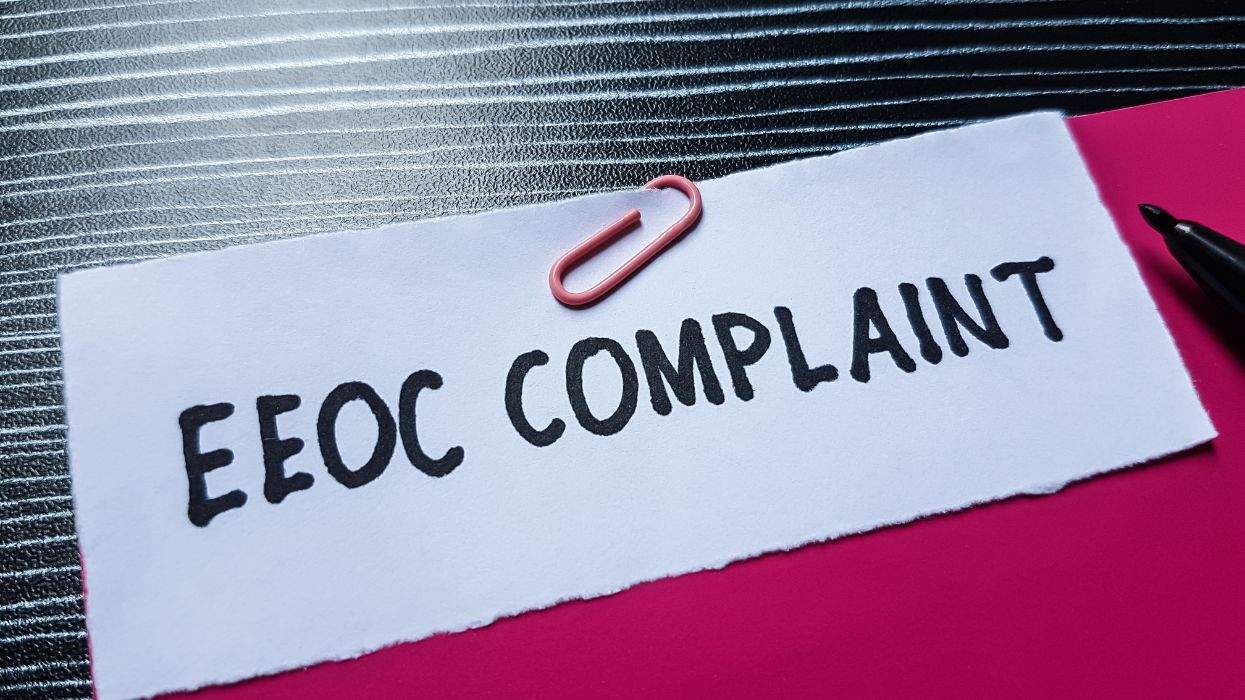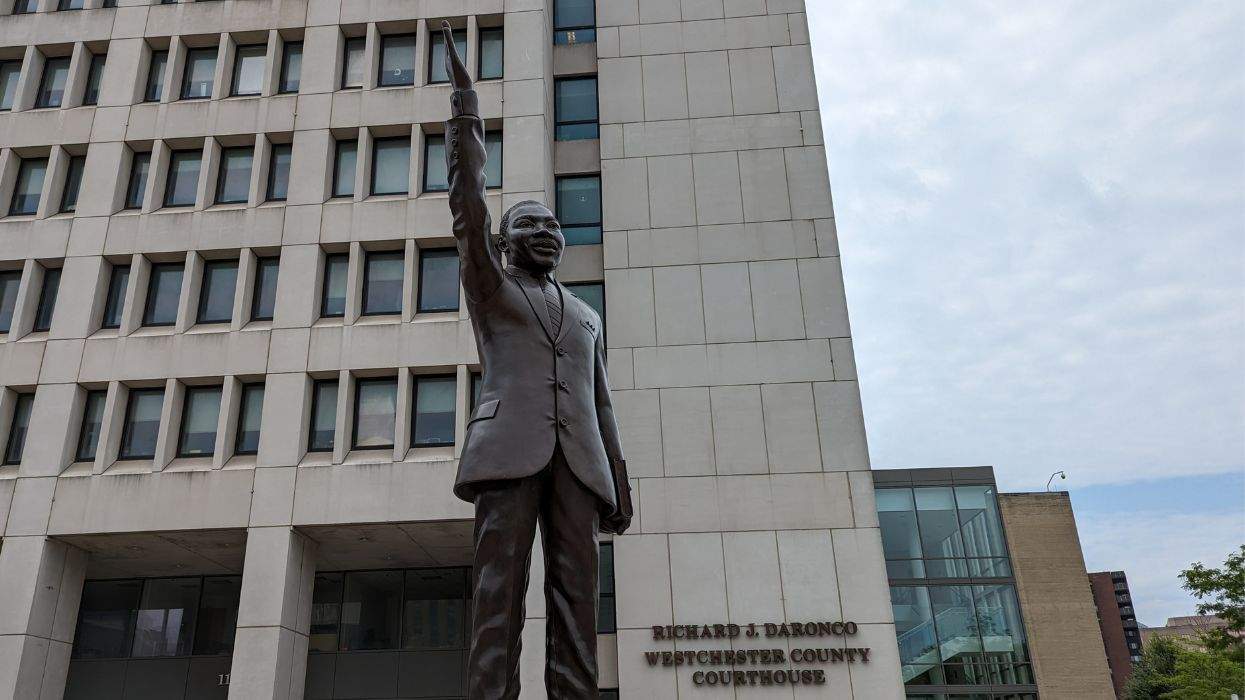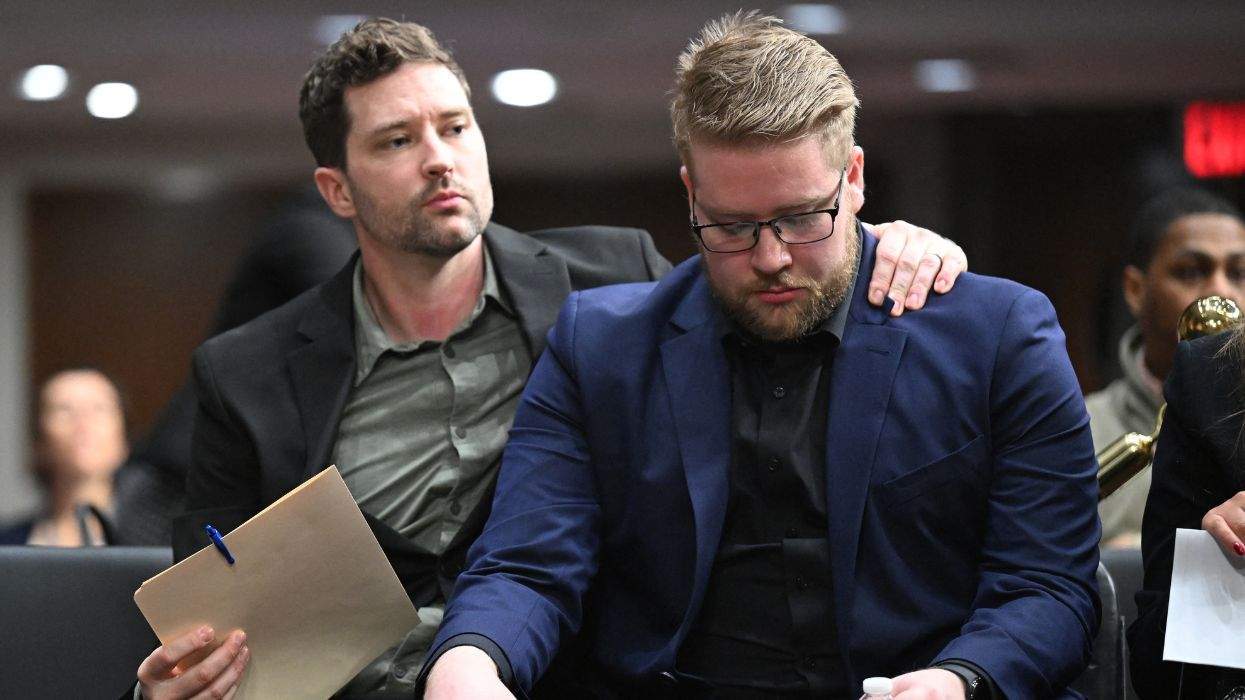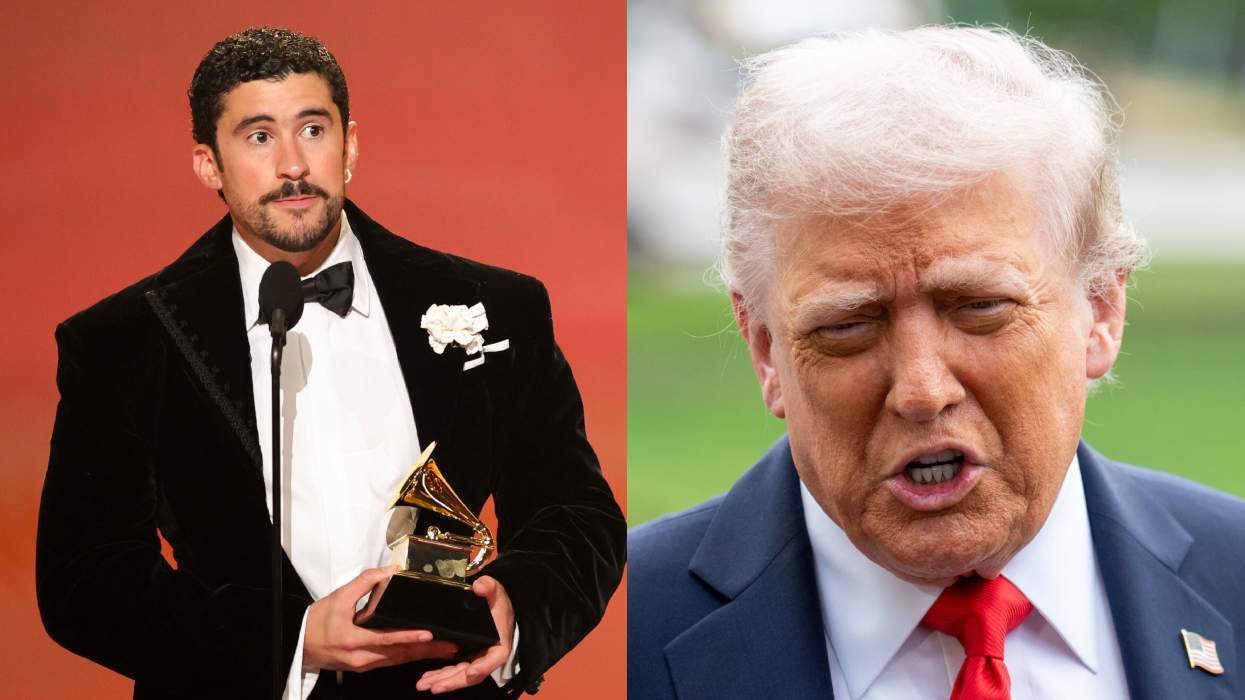For David Moore and his partner of 17 years, Harry Klein, buying a house together in 2009 in West Orange, N.J., was a huge financial decision. Not only was $300,000 the largest sum of money they had ever spent, but the decision was fraught with all kinds of planning decisions they had put off making until that point. Their mortgage broker, from Wells Fargo, was friendly and helpful enough. But they knew buying a house would bring up more questions about their financial lives than she could answer.
Should they title the house together, and what would the tax implications be for that? Now that they owned property, whom should they go to in order to get their wills--and their living wills--in order, and who would help them figure out what their new tax situation was going to be? There were other questions as mundane as, Did they need to open a joint account to pay the mortgage? Still, there was no one place they could turn to gather all the necessary information. In addition to meeting with real estate brokers and mortgage brokers, they had to seek the advice of an attorney and a financial planner. And all that required money, of course, into the thousands of dollars.
"There really are no protections for same-sex couples if something happens to one or the other," Moore says. "It is overwhelming what we have to do in order to protect each other."
While the wealthy--gay or straight--have long had money management help at their fingertips, only recently has the personal finance industry geared services toward gay clients. A big service gap remains to be filled with regard to the gay lower and middle classes, but some institutions are now reaching out to a specifically gay clientele and not just the superrich. They're reaching out to the rest of us too.
The denial of federal marriage equality in particular presents a money problem for gays. Straight married couples are viewed as one economic entity and are automatically protected when one spouse dies or when that couple divorces. Yet same-sex couples have no such protections and are vulnerable to onerous tax rates or attacks on shared assets by blood relations, whom the government often sees as the next of kin, denying a spousal relationship.
"It boils down to marriage rights," says Jennifer Hatch, president of Christopher Street Financial, one of the oldest financial advisories for gays and lesbians, based in New York. "The average straight couple gets a lot of their financial setup simply by saying 'I do.'"
For tax purposes the federal government views same-sex couples as business partners, so everything that involves assets--building them and sharing them--is taxed as if it is part of a business relationship. House buying is the prime example. If one partner buys it but adds the other to the title, the spouse is required to file a gift-tax return with the federal government. (The same thing goes for giving your partner other property, like an expensive car.) Even if a couple buy a house together and use a title called joint tenancy with right of survivorship, there may be undesirable estate tax issues upon one partner's death. And if that couple haven't set up a proper will, a surviving partner could wind up sharing the abode with the deceased's distant family members, whom the courts might view as the legitimate heirs to the property.
Nevertheless, as the concept of family has evolved, so too has the understanding by banks and other financial institutions that gay customers are worth pursuing. Since the mid 1990s, about the time that employee groups started pushing large corporations to extend domestic-partner benefits to same-sex couples, corporate America began to see gays and lesbians as an increasingly important market. Some banks that cater to the wealthy have set up new--or modified existing--practices to engage gay clients. Northern Trust in Chicago, for example, typically deals with high-net-worth individuals, with $1 million or more in assets to invest. In January it rolled out its LGBT and Non-Traditional Family Practice, which focuses on the financial planning needs of same-sex and domestic partners.
The bank has started with some small initiatives, including revamping new-account forms to include the word partner in addition to . And it's done some more comprehensive thinking too--such as helping gay consumers do more complete financial planning by directing them outside legal counselors who can help clients draft documents, not only for trusts and estates but also for scenarios particularly germane to gay customers, such as surrogacy agreements.
At the same time, McGowan acknowledges that many of the wealth preservation mechanisms to which the bank guides gay clients are not really new at all. Instead, they are tried-and-true mechanisms the very wealthy--regardless of sexual orientation--have used for years, including financial guardianship services for couples with children and estate planning that may include setting up complicated vehicles like charitable remainder trusts and grantor-retained annuity trusts, which are powerful tax-saving apparatuses for the very wealthy.
Meanwhile, the need for gay-specific advisories like Christopher Street Financial has become more attenuated, and such companies have become more local phenomena. Today, two thirds of Christopher Street's clients come from the New York metro area as opposed to all over the country, which was the case back in the 1980s and 1990s. "You no longer need necessarily to go from Alaska to New York City to find somebody to help you," Hatch says, "though we are happy to help." She adds that she questions whether the depth of advice from some of the recent additions to the gay and lesbian financial advice market is adequate. "There are a lot of very technical issues that need to be understood by somebody who is working with same-sex couples, particularly related to ownership and asset titling, taxing and inheritance," she says.
But the most significant changes in the industry over the past few years have occurred in services for those who are not superrich. Banks have always been in the first-mover category reaching out to gay consumers. "Every major financial institution has now undertaken a marketing campaign, whether for home mortgages or auto loans or lines of credit or credit cards," says Justin Nelson, president of the National Gay and Lesbian Chamber of Commerce.
In 2009 Wells Fargo began offering its Accredited Domestic Partnership Advisor program, developed in conjunction with the College for Financial Planning, which certifies financial planners nationwide. The program aims to create a base of advisers certified to help clients who are domestic partners. So far, the bank has 20 such accredited advisers--out of a universe of 16,000 at the Wells Fargo Advisors division--who are specialists in the planning needs of same-sex couples. "Not having federal marriage as a protection adds some unique concerns in terms of wealth management and legacy planning," Ng says. "We try to help our clients and prospects understand how this is different." Still, Ng admits this service is primarily for more affluent gay people.
Bank of America, which acquired Merrill Lynch during the market meltdown in 2008, has a wealth advisory practice devoted to gays and lesbians. Seven advisers make up the bank's LGBT National Financial Services Team, assisting Merrill's team of 15,000 advisers nationally when they encounter gay or lesbian clientele who could benefit from planning specific to domestic-partner issues. Advisers are trained to use software that can create comprehensive financial plans specific to domestic partners. "There is a huge commitment by the entire organization to this particular segment of the market," says William Moran, financial adviser for Merrill Lynch Wealth Management and leader of the LGBT National Financial Services Team. Moran adds that while many of the gay people they see are well off, the bank will help people of any economic bracket. Fees range from $250 to $1,000 for a comprehensive financial plan that includes estate, retirement, and education planning.
But big banks are not the only ones addressing the needs of a gay market. Smaller ones as well, like Wainwright Bank, based in Boston, are doing it in other ways. The bank has been pushing the envelope for gay customers since the 1990s, when it released its Community Card credit card. The affinity card donated a percentage of profits to gay causes and caused a stir when it was initially released. Because the bank is based in Massachusetts, where same-sex marriage has been legal since 2004, the idea of fuss surrounding a card like that now seems like a quaint relic from the past. "Like any bank around here now, you are not going to have the perception of discrimination that existed 15 years ago," says Steve Young, a senior vice president for the bank.
Young says about 10% of Wainwright's 165 employees are LGBT, and it has two openly gay senior vice presidents and a lesbian member of the board of directors. The bank's progressive politics affect its day-to-day culture, and that satisfies customers like Jonathan Scott, a gay man who has been a customer at Wainwright for 15 years. Over that time he's moved all of his family and business accounts to the bank and says a major reason for doing business there is the atmosphere of inclusion he feels when he walks into a branch, where he says he's likely to see rainbow flags on bankers' desks or posters for an AIDS walk. "Many banks are using the [LGBT] buzzwords," he says, "but I know that Wainwright has actually created this as a culture for both their customers and employees."















